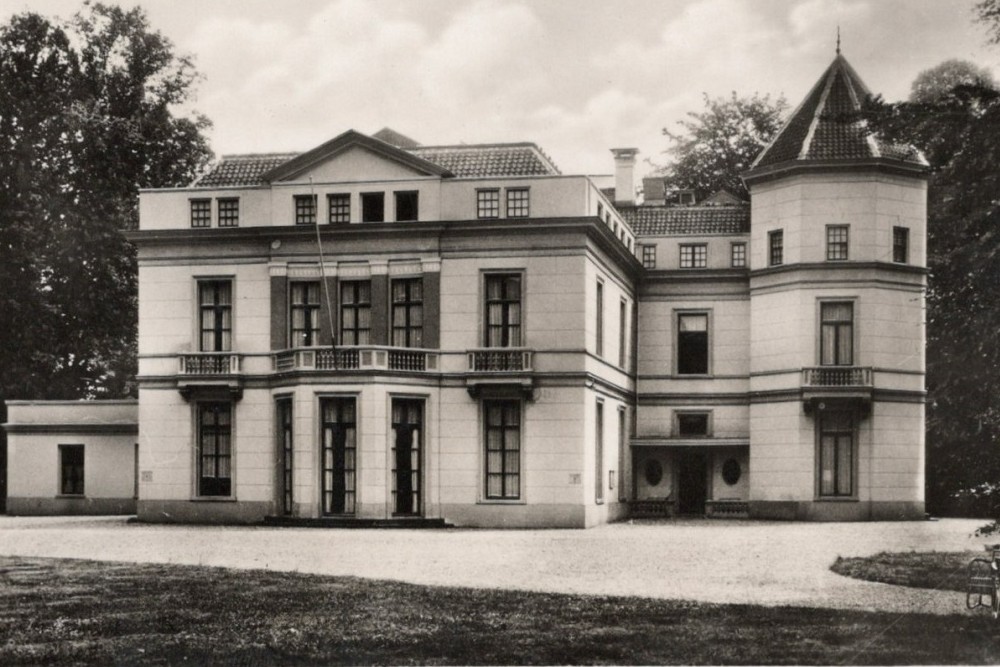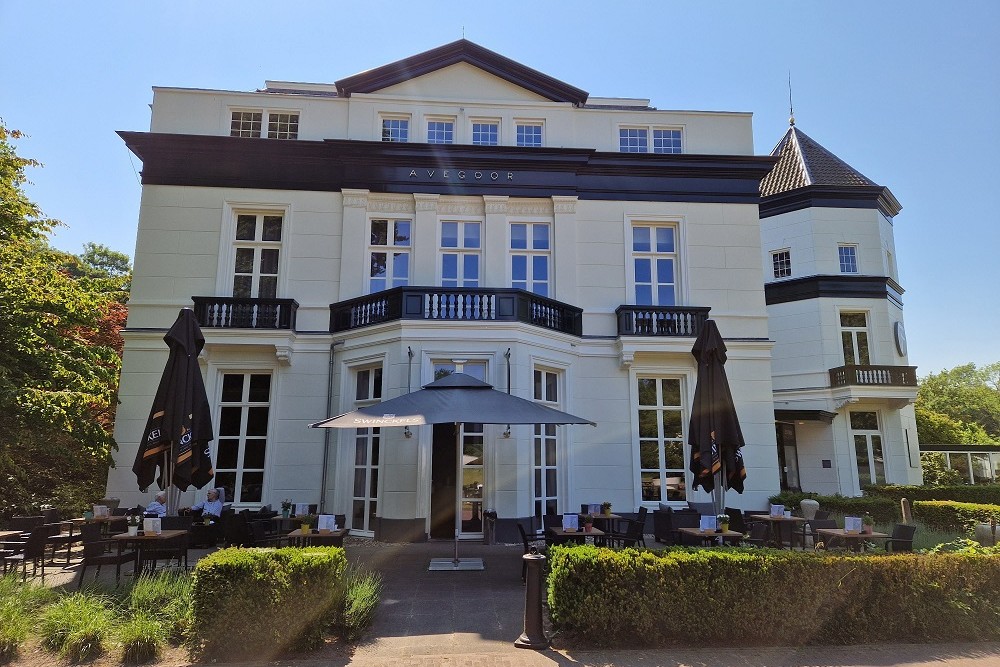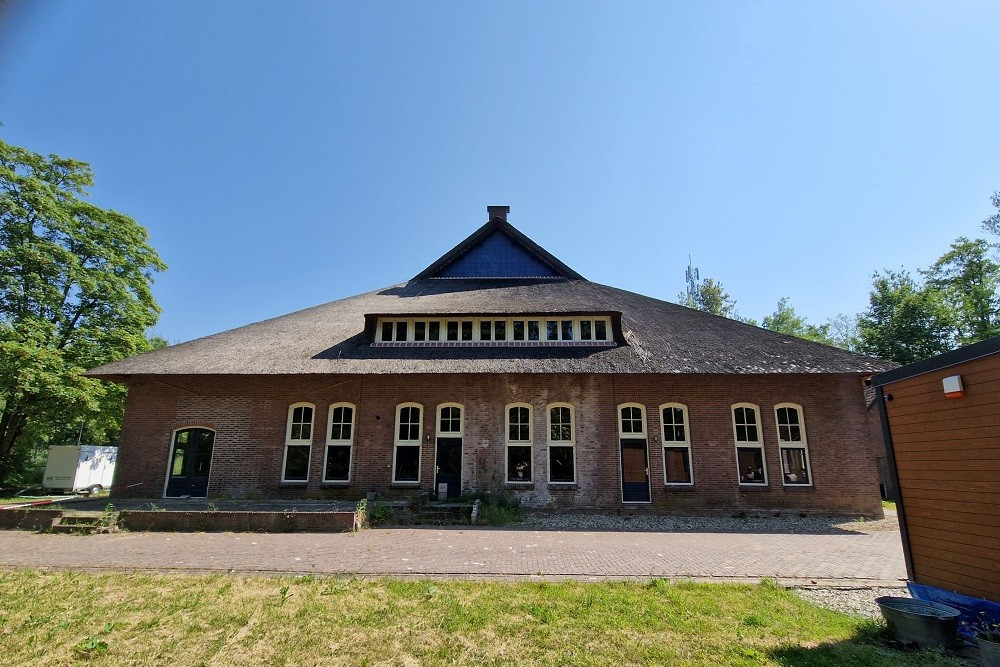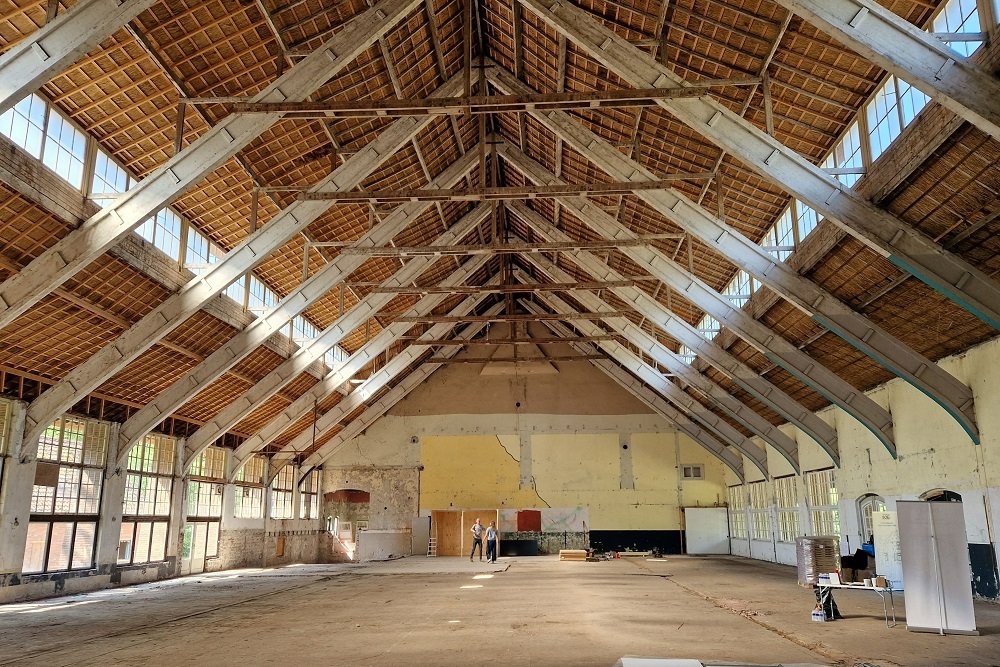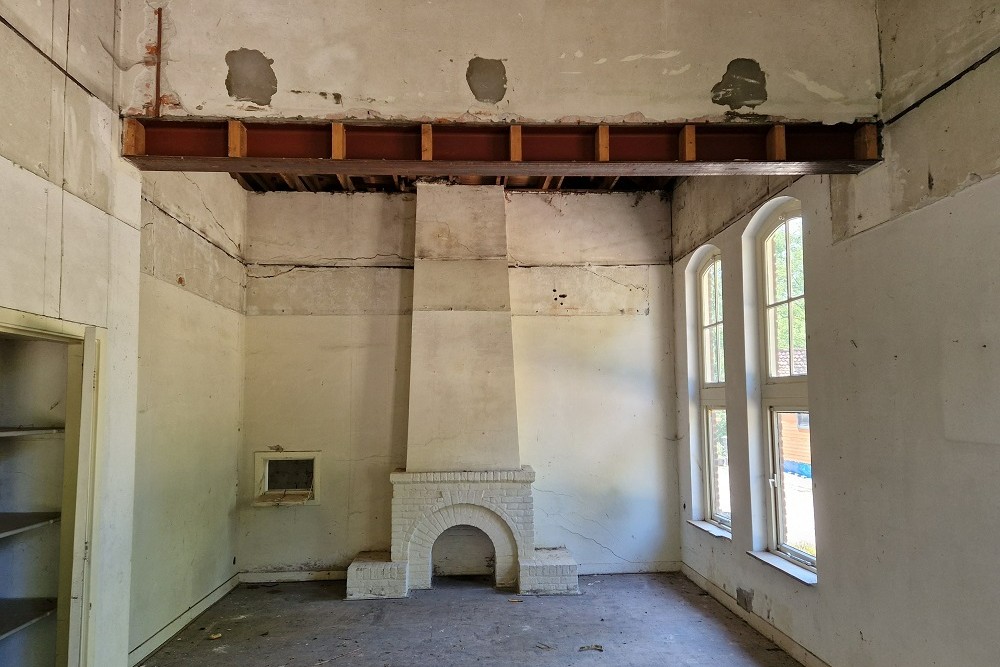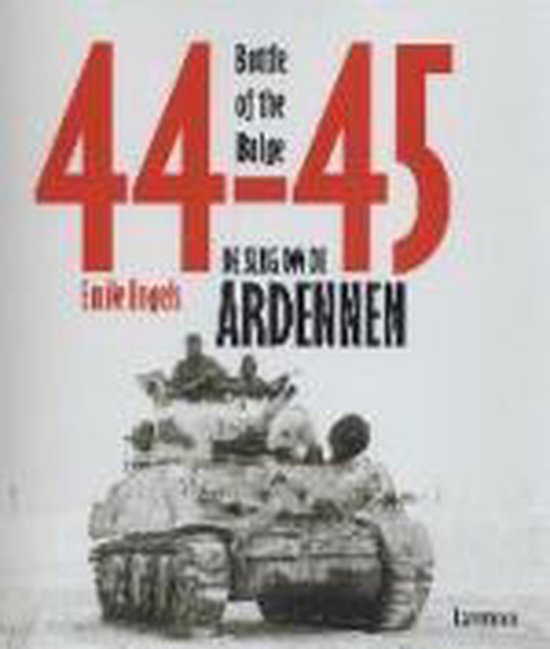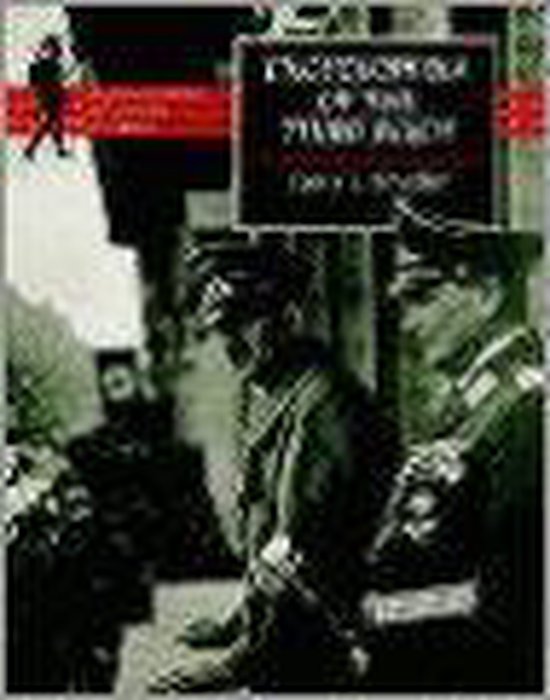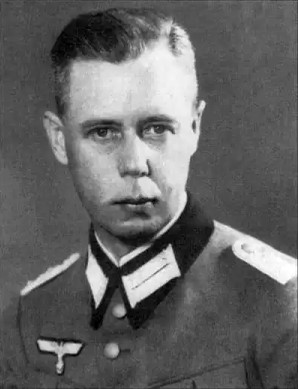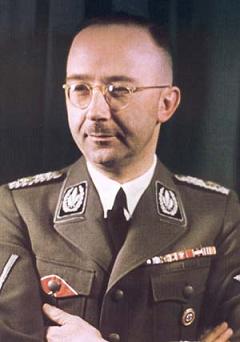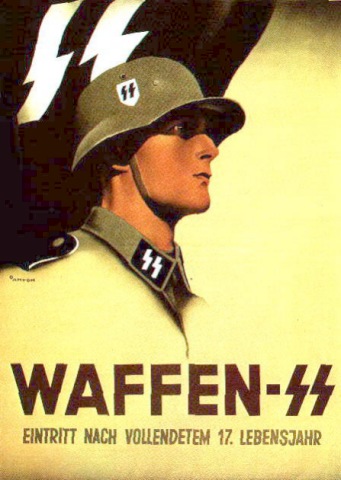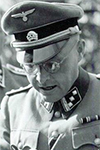SS-Ausbildungslager Avegoor
Buildings can be special in many ways. There is a special building on the Veluwe, in the rural, wooded Ellecom. It's an SS Gymnasium. Landgoed Avegoor, including the old country house and estate, was taken over in 1928 by the Union of Personnel in Government Service. They created a holiday resort for civil servants here. The members of the union, which later became the trade union, could relax cheaply or for free after hard work with their families.
The complex was named after the socialist Troelstra. Incidentally, there were more such Troelstra holiday resorts, such as in Beekbergen, Castricum, and Egmond aan Zee.
What is now Fletcher Landgoed Avegoor, a place where people relax again, was a location during the Second World War where the poisonous National Socialist ideas were taught. And after May 1945 there were National Socialists again, but now as prisoners, awaiting punishment.
And speaking of 'guilty' footsteps...Many notorious persons from the circle of the German occupiers have been here, and have visited this location and this building. Reichsführer SS Heinrich Himmler was there at the opening in April 1943, together with SS Obergruppenführer Rauter. Mussert was there, and many other figures around the NSB and SS.
Like many country estates, the Avegoor holiday resort for civil servants, including a country house, tennis court and park, was requisitioned by the German occupiers. In May 1941 training was started on the estate. She called it the SS-Schule Avegoor. The newspaper Storm SS writes about it on November 7, 1941. The hall is here referred to as 'exercise hall' and 'sports hall'.
What is "Avegoor" actually? The name is that of a country house. This white building is beautifully situated amidst the tall trees of the park, which belonged to this original estate. Major changes have been made by the Waffen-SS, but the original character of the building has been preserved. A kitchen has been added, the classrooms have been converted into barracks, large washrooms and shower rooms have been installed, and this renovation is continuing. A large exercise room of 30 x 40 meters, also furnished as an indoor sports hall will be erected within a few weeks and the canteen will also undergo some changes. And new plans are already ready to turn this place into a model school, which fully meets the requirements that must be set for such an institution "The building, grounds and staff have been made available to the Dutch SS by the Waffen-SS. Why? That can be clearly read from the words of the commander quoted above." With this, the first and so far only school of the Waffen-SS was founded outside Germany in the Germanic border states.
From September 1942, Jewish forced laborers were deployed on the estate to level and construct a sports field with stands. The treatment was not gentle. Hard work, abuse, little food. Three of them died. The remaining 136 were sent to Westerbork in November 1942, and later on to extermination camps. A small proportion of mixed marriages were released from Westerbork after a year. See: Jewish War Graves Ellecom
Many of the men who received training here later fought on the Eastern Front with the Waffen-SS. But it certainly wasn't limited to the SS. All kinds of other National Socialist organizations also organized all kinds of courses and training for and by the NSB, the Employment Service, W-A, etc. Certain professional groups were also welcome, such as mayors and teachers.
In September 1944 the training institute was moved, and a Verbandplatz was built in Avegoor.
After the German capitulation, the complex was used by, among others, the Dutch Red Cross, for the distribution of food.
Then came prisoners. Collaborators, of everything that was considered wrong Dutch people at the time; NSB members, SS members, etc., were housed at Avegoor. At the beginning of July 1945, 850 people were imprisoned, including 300 women. (*). There were so many that the regular prisons were not enough, and all kinds of locations were used as prisons. Old forts of the Waterlines, for example, schools and barracks. Avegoor probably wasn't the worst location to sit. The prisoners were suspected of collaborating with the enemy, in all kinds of areas, and in all kinds of forms. Or that period is actually not much written. It is therefore interesting to read how a journalist experienced a visit at the time. And also imagine the cribs and straw bags in the sports hall..
Life in a Political Prisoner Camp. Amigoe di Curacao 10 September 1945, via Delpher.nl
[Own correspondence].
In the previous letter I already wrote something about the purge and promised life in a camp
for political prisoners. There are several such camps, including the infamous, former German concentration camp in Vught, where thousands of good patriots were imprisoned during the
occupation, now houses traitors to the Dutch cause.
Complaints have sometimes been made about the leadership of some camps: in one camp management is said to be too strict, in the other not strict enough. There may be truth in these complaints, there have certainly been abuses here and there, and the grievances are undoubtedly exaggerated in part. These days I have had the opportunity to observe life in camp Avegoor, a former training camp of the "Dutch" S.S., located in Ellekom between Dieren and De Steeg.
It consists of a strictly separated men's and women's camp. All 550 men—except a few very old ones, who are housed together in a separate room—are quartered in one great hall, sleeping on loose straw in boxes on the floor; only the oldest and invalid among them! have a crib. The 300 women all sleep in cribs. Everyone must provide their own blankets and clothes. Reveille is at half past five in the morning, first roll call at six o'clock.
From half past eight in the morning to 6 in the afternoon, work is done with a rest of one
hours before lunch. And if I tell you now, that every prisoner per day on average for
twenty cents and that no more is eaten than normally provided on the distribution slips
if, however, the stimulants are withheld, then you will understand that there is no question of a lavish or lavish diet. All prisoners, who are physically able to do so, must work, either with farmers on the land or elsewhere — of course under strict surveillance — where the employers pay the normal hourly wages to the camp management, either in the camp groundwork, wood sawing, shoe making, tailoring, furniture making, kitchen work, camp maintenance etc.
A painter among the prisoners and his helper paint the large bare walls of
the men's hall with Dutch scenes; he is currently designing an allegory of the Resurrecting Dutch
country. Interestingly, the camp is already self-sufficient financially. During the day there are three roll calls and two work roll calls. I have experienced such a roll call: it goes, as it is, by the way everything in the camp, according to strict military system. At 9 p.m. everyone must be under the wool and not a word may be spoken. Once a month, each prisoner is allowed under supervision receive a 15-minute visit; nothing may be handed over to the prisoner. Furthermore
they may write and receive a letter once a month; these letters are censored. Finally, they may receive their defender. This together is the only contact with the outside world. There are three kinds of punishments for misconduct: execution, withholding of favors such as writing letters and receiving visitors, and in serious cases imprisonment.
dragged along; these were prisoners. who had attempted to escape. Incidentally, corporal punishment is not part of the system; this is not to say that it does not occur, that one unwilling
prisoner does not even receive a box on the head or a plug with the butt of a rifle, but we are too decent for corporal punishment as the Nazi executioners knew it. Once, however, it happened in the Avegoor camp that a prisoner - even after warnings - brutally refused to obey an order: this man was shot by his guard and is now lying in the hospital. Commander Sprenger and his helpers keep a firm hold on the strings in camp Avegoor and there is therefore exemplary order, discipline, neatness and quiet activity, without any hint of inhumanity. Besides, there may still be innocent people among these people: they are, as it were, in pre-trial detention. Meanwhile, the Tribunals have started their work and the first sentences have been handed down, varying between five and ten years of internment. They did not yet concern the major culprits, who were not locked up in the camps but in prisons, or SS men, who were brought together in a special camp on the Veluwe. From the foregoing it may become clear that a camp for political prisoners is not exactly a holiday resort or sanatorium, as has sometimes been scornfully claimed. F.J. de Fraiture.
The prisoners had everything on their record, from criminal, hanger-on, war criminal, to pragmatic people. It ranged from flying the flag on Mussert's birthday to burning down villages and carrying off men. (Fritz Fullriede Putten) After the trial, the judge ruled, after which they were either released, with loss of voting rights, or sentenced to prison.
In January 1949, the sports hall was released again. The building then became a holiday camp again, until asylum seekers arrived in the 1990s. The stately main building has been a hotel since 2013, with other wings built around it.
Boei has been the owner of the sports hall since 2022. We are currently looking for another destination. Boei is a non-profit organization engaged in the restoration, repurposing and development of industrial, agricultural and religious heritage. In this way they have already been able to give a new life to more than 500 buildings and locations. A new function is often the saving grace of a building. This prevents demolition and preserves history. For those who want to know more: Home - BOEi
Photo captions;
Photo 1: Postcard of the Troelstra resort Avegoor, Ellecom. Main building (front view)
Photo2: The same building in 2023
Photo 3-5: The sports hall from inside and outside. The building is waiting for a new destination.
(*) Trouw 11 July 1945.
Do you have more information about this location? Inform us!
Source
- Text: M.S. Laarman
- Photos: M.S. Laarman
- Delpher
- Terugblik, tijdschrift van documentatiegroep 40-45, artikel Avegoor en het werkkamp Palestina, Rene Taselaar. 46e jaargang nr 9, Oktober 2008
Related books
Nearby
Museum
Point of interest
- German Lookout Post Rheden - Rheden
- Concrete Encased M4 Sherman Tank Eden Doesburg - Doesburg
- Great or Martini Church - Doesburg
Monument
- Liberation Route Marker 023: Hell of Ellecom - Ellecom
- Memorial 'The hell of Labour Camp Ellecom' - Ellecom
- Memorial Killed British Soldiers - De Steeg
Cemetery
- Jewish War Graves Ellecom - Ellecom
- Dutch War Grave Dieren - Dieren
- Commonwealth War Grave Roman Catholic Cemetery Olburgen - Olburgen
Remembrance Stone
- Stumbling Stones Zutphensestraatweg 12 - Ellecom
- Stumbling Stone Binnenweg 75 - Ellecom
- Stumbling Stone Stationsplein 16 - Dieren
